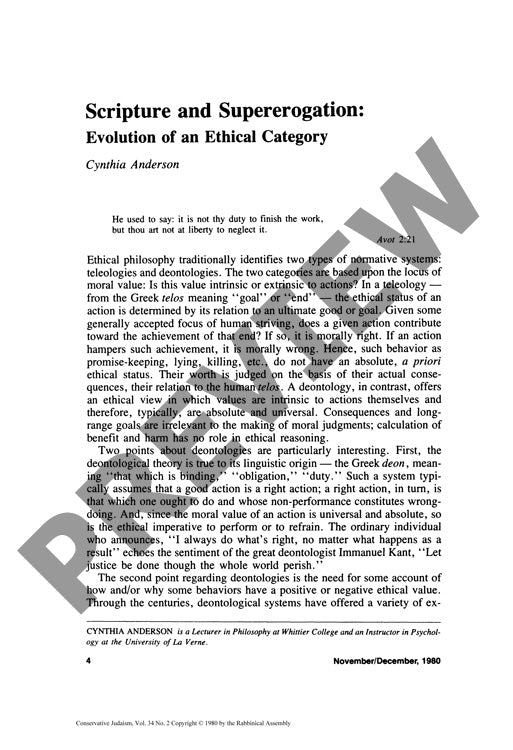Scripture and Supererogation Evolution O
Couldn't load pickup availability
The enduring tension between moral duty and extraordinary virtue challenged classical Jewish thinkers as they wrestled with a theological paradox: How could religious law promote exceptional moral achievements while maintaining clear universal obligations? Through analysis of rabbinic texts and comparison with Thomistic ethics, two key mechanisms emerge that resolved this philosophical dilemma. Rabbi Tarfon's framework distinguished between universal moral requirements and aspirational ideals, while the legal principle of lifnim mishurat hadin carved out space for actions transcending strict requirements without undermining basic norms. These rabbinic innovations successfully preserved both the binding force of divine commandments and the inspirational power of exceptional moral conduct. By establishing that extraordinary achievements could exceed obligation without rendering non-performance blameworthy, classical Judaism integrated supererogation into its deontological framework while protecting ordinary virtue from the paralysis of impossible standards. The rabbis' sophisticated resolution anticipated similar developments in medieval Christian ethics, offering broader insights into how religious systems balance universal duties with calls to moral excellence. Textual analysis reveals how this theological architecture maintained the God-man ethical continuum while providing a practical framework for moral striving beyond minimal requirements.

More Information
-
Physical Description
-
Publication Information
Published 1980
ISBN
-
Publication Credits
Cynthia Anderson

